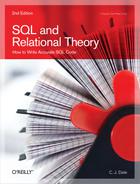Logic is useful because (among other things) it’s a great aid to clear and precise thinking. By contrast, everyone would surely agree that natural language is often vague and ambiguous. The following piece by Robert Graves and Alan Hodge illustrates the point delightfully:[136]
From the Minutes of a Borough Council Meeting:
| Councillor Trafford took exception to the proposed notice at the entrance of South Park: “No dogs must be brought to this Park except on a lead.” He pointed out that this order would not prevent an owner from releasing his pets, or pet, from a lead when once safely inside the Park. |
| The Chairman (Colonel Vine): What alternative wording would you propose, Councillor? |
| Councillor Trafford: “Dogs are not allowed in this Park without leads.” |
| Councillor Hogg: Mr. Chairman, I object. The order should be addressed to the owners, not to the dogs. |
| Councillor Trafford: That is a nice point. Very well then: “Owners of dogs are not allowed in this Park unless they keep them on leads.” |
| Councillor Hogg: Mr. Chairman, I object. Strictly speaking, this would keep me as a dog-owner from leaving my dog in the back-garden at home and walking with Mrs. Hogg across the Park. |
| Councillor Trafford: Mr. Chairman, I suggest that our legalistic friend be asked to redraft the notice himself. |
| Councillor Hogg: Mr. Chairman, since Councillor Trafford finds it so difficult to improve on my original wording, I accept. “Nobody without his dog on a lead is allowed in this Park.” |
| Councillor Trafford: Mr. Chairman, I object. Strictly speaking, this notice would prevent me, as a citizen, who owns no dog, from walking in the Park without first acquiring one. |
| Councillor Hogg (with some warmth): Very simply, then: “Dogs must be led in this Park.” |
| Councillor Trafford: Mr. Chairman, I object: This reads as if it were a general injunction to the Borough to lead their dogs into the Park. |
| Councillor Hogg interposed a remark for which he was called to order; upon his withdrawing it, it was directed to be expunged from the Minutes. |
| The Chairman: Councillor Trafford, Councillor Hogg has had three tries; you have had only two ... |
| Councillor Trafford: “All dogs must be kept on leads in this Park.” |
| The Chairman: I see Councillor Hogg rising quite rightly to raise another objection. May I anticipate him with another amendment: “All dogs in this Park must be kept on the lead.” |
| This draft was put to the vote and carried unanimously, with two abstentions. |
Note: I can’t resist pointing out that the final draft is still ambiguous—it could logically be interpreted to mean that all dogs in the park must be kept on the same lead. But enough of dogs ... Let’s move on.
[136] Thanks to Lauri Pietarinen of Relational Consulting Oy, Helsinki, Finland, for drawing this splendid example to my attention. The example is included and analyzed in detail in Ernest Nagel: “Symbolic Notation, Haddocks’ Eyes, and the Dog-Walking Ordinance,” in James Newman (ed.), The World of Mathematics, Vol. 3. Mineola, N.Y.: Dover Publications (2000).
